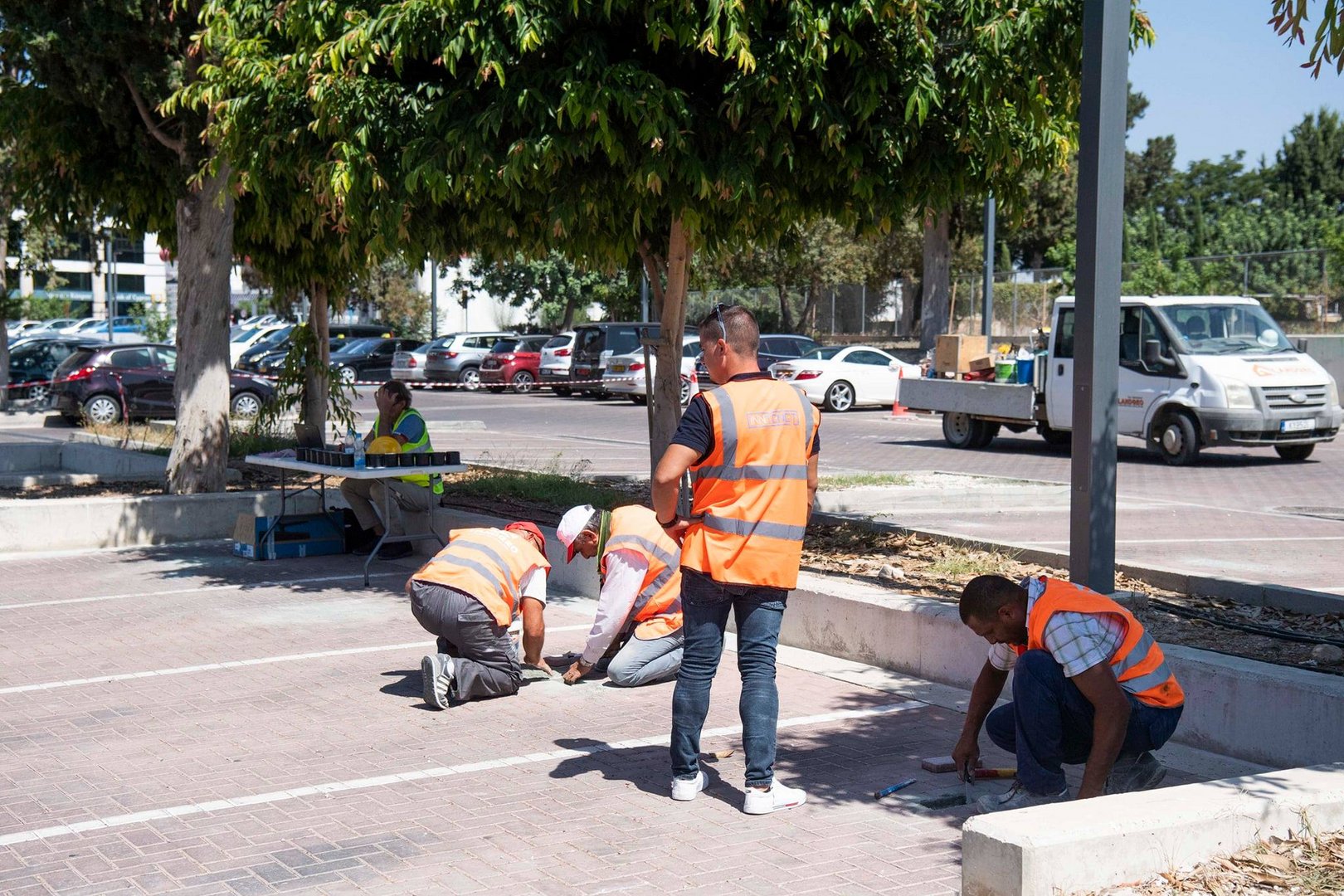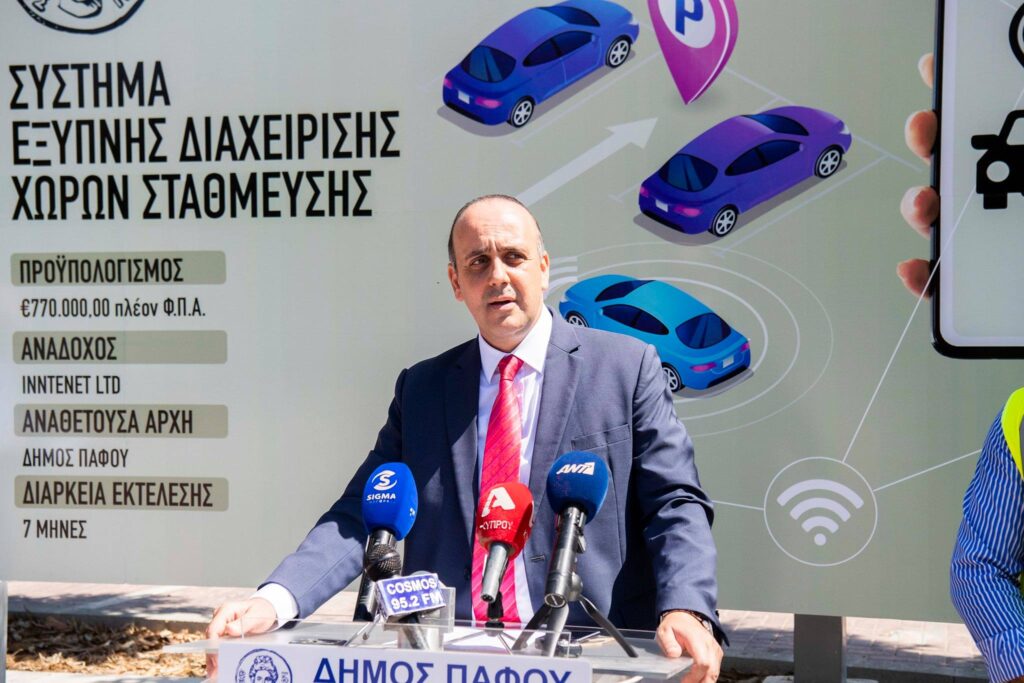Several programmes in Paphos are on the way to making life easier for those who either live there or are just visiting
The municipality of Paphos has become the first local authority in Cyprus to adopt a comprehensive app to manage parking areas and spaces. Installation works for the system’s highly innovative in-ground sensors are already underway throughout the city centre and are continuing at a rapid pace. Upon completion, the app will manage 3,100 parking spaces in organised lots and lanes with the use of sensors for each space.
Speaking at the one of the construction sites earlier this week, Paphos Mayor Phedonas Phedonos said the implementation of the smart parking system is the first of many innovative projects planned for Paphos. “The new system, costing €916,000, will be completed in four months, and will bring a great many benefits to the town’s citizens and visitors,” he added.
In addition, a smart parking mobile app will assist the public to find available parking spaces, saving time, resources, and effort, as well as allowing the payment of parking fees through the app or SMS. “The system will provide accurate parking fees based on the amount of time the vehicle is parked,” the mayor added.
Among other benefits, the ‘smart’ system will help reduce unnecessary movement of vehicles, will integrate the entire user experience into a unified action, and will significantly decrease driving time, thus lowering the amount of daily vehicle emissions, and ultimately reducing the environmental footprint. Paphos’ smart parking system is being carried out in collaboration with the Deputy Ministry of Research, Innovation and Digital Policy and has been selected for funding by the EU Fund.
Phedonos said other ‘smart city’ projects currently underway include the installation of the LoRaWAN Network, the Geographic Information System (GIS) that will analyse and display geographically referenced information, the installation of smart pylons and smart street lighting systems, smart water management system, and the digitisation of municipal archives.
“Our aim is to complete all these projects within a period of 18 months so that Paphos will be included in the list of smart European cities,” Phedonos said. “Improving transportation and accessibility, social services, and promoting sustainability, will also improve the quality of life for everyone.”
One of the steps taken earlier this year, which has contributed to Paphos’ digital transformation, is the launch of online platform and digital app www.explorepafos.org that runs Augmented Reality combining virtual information with the real world. The innovative platform Explore Pafos is a digital tour guide of Paphos, which offers multimedia information (text, photos, videos, 360 panoramas) on key areas of interest focusing on culture, the environment, tourism, and services. The app also offers an interactive map and event calendar with multilingual content in English, Greek, Russian, Hebrew and German.
A spokesperson from the municipality told the Sunday Mail that aside from the various projects aimed at transforming Paphos into a modern, technology-based urban area is its key objective to enhance competitiveness and entrepreneurship. “Our aim is to promote the harmonious economic, social and territorial development of the European Union as a whole,” he said. Known as Interreg V-A Greece-Cyprus 2014-2020, the collaboration programme, of which Paphos participates as a lead partner, together with the municipalities of Chania and Mytilene, will focus on areas such as energy, climate change and transport, and promote a low-carbon economy. The programme will also look at the promotion of natural and cultural heritage, technologies for the protection of natural resources, financing priorities and disaster prevention.
The Pafos Innovation Institute (PII), which began operations in October 2020, is a first-of-its-kind joint initiative between IDC Herzliya, a leading Israeli academic institution, and Paphos, headed by Phedonos, and aims to foster collaborations and generate solutions to challenges in the areas of water, energy and food security. “The PII is a fine example of how Paphos is rapidly transforming into a sustainable city,” the spokesperson said. “The institute will form a hub for interregional collaborations and a networking platform for young leaders from Eastern Mediterranean countries that will facilitate the knowledge sharing and collaboration needed to further develop innovative and sustainable solutions in the fields of water and energy,” he added.
Earlier this year, the mayor of Paphos signed an agreement with the CEO of Cyta, Andreas Neocleous, for developing and maintaining a Geographic Information System (GIS) in the municipality. Neocleous described Paphos as a shining example for other cities in Cyprus to follow, and his readiness to support the municipality’s journey to becoming a smart city of the new technological era.








Click here to change your cookie preferences